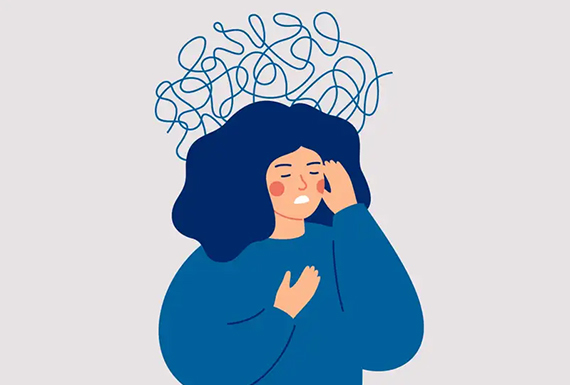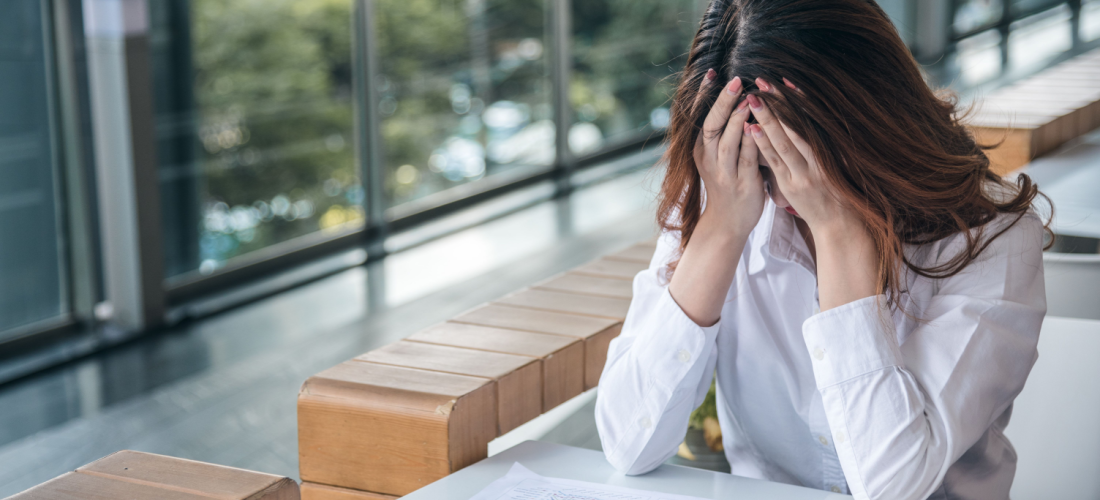Checking Out Various Approaches in Therapy for Anxiousness Disorder for Lasting Modification
When taking on anxiousness disorders, it's necessary to check out a range of therapy approaches. Each method uses one-of-a-kind understandings and tools to assist you handle your signs and symptoms properly. You could locate that combining techniques can yield the very best results. Nevertheless, recognizing the subtleties of these approaches is vital to cultivating long lasting change. Suppose the ideal mix could launch a brand-new degree of psychological wellness for you?
Comprehending Stress And Anxiety Disorders: A Quick Introduction
Anxiousness conditions, which affect numerous individuals worldwide, can considerably impact every day life. You may experience frustrating sensations of concern or worry that appear uncontrollable. These feelings can cause physical signs and symptoms like an auto racing heart, sweating, or also dizziness. Common kinds of anxiety problems include generalized anxiety condition, panic attack, and social anxiousness problem. Each has distinct indicators, however they all share a propensity to disrupt your regular and relationships.Understanding the root triggers of your anxiousness is important. It may come from genes, brain chemistry, or life experiences. Acknowledging your triggers can aid you manage your actions better. It is essential to bear in mind that you're not the only one in this battle. Lots of people encounter similar difficulties, and looking for help is a strong action toward feeling better. By discovering about anxiousness conditions, you're currently on the path to understanding and handling your problem better.
Cognitive-Behavioral Treatment: Challenging Negative Idea Patterns
In Cognitive-Behavioral Therapy, you'll start by identifying the adverse idea sets off that add to your anxiety. You'll function on replacing them with even more positive options as soon as you identify these thoughts. Together, you'll develop effective coping methods to help manage your anxiety in everyday circumstances.
Determining Adverse Thought Triggers

Acknowledging the specific triggers behind your unfavorable ideas can be important in managing anxiety when you run into minutes of distress. Begin by taking notice of scenarios that provoke feelings of worry or worry. Is it a congested area, a forthcoming due date, or a discussion with specific individuals? Write down these circumstances in a journal. This will certainly aid you determine patterns in your thinking. Notice physical sensations that accompany your unfavorable thoughts, like an auto racing heart or tightness in your chest. By determining these triggers, you obtain insight into what's sustaining your stress and anxiety. Comprehending these connections is the primary step in challenging those ideas and inevitably reclaiming control over your psychological responses.
Replacing Ideas With Positives
Challenging negative thought patterns is a necessary action in changing your attitude and minimizing anxiousness. You might frequently discover on your own entraped in cycles of insecurity or catastrophic thinking. Rather than letting these ideas determine your sensations, practice changing them with positive affirmations or sensible alternatives. For circumstances, when you think, "I can not manage this," shift it to, "I can handle difficulties one action at a time." This basic adjustment can considerably impact your psychological state. Frequently identifying and responding to these adverse thoughts aids create a much healthier inner discussion. Bear in mind, it takes some time and effort, however continually exercising this strategy can lead to lasting change, empowering you to deal with anxiousness with restored self-confidence and strength.
Structure Coping Strategies Together
Replacing unfavorable ideas is only the beginning of managing anxiousness efficiently. To create long lasting modification, you need to build coping strategies that encourage you. Cognitive-Behavioral Treatment (CBT) helps you identify and challenge those unhelpful thought patterns. Together, you and your counselor can explore just how these thoughts impact your feelings and behaviors.Start by developing functional strategies, like journaling or mindfulness exercises, that enable you to confront anxiousness head-on. When you encounter your concerns progressively, you'll discover to react in a different way.

Mindfulness and Acceptance-Based Approaches: Cultivating Present-Moment Recognition
As you browse the intricacies of anxiety, incorporating mindfulness and acceptance-based techniques can substantially enhance your ability to cultivate present-moment recognition. By concentrating on the present moment, you'll discover that you can observe your thoughts and sensations without judgment (Counseling services for anxiety). This method aids you acknowledge your anxiety without really feeling bewildered by it.Engaging in mindfulness workouts, such as deep breathing, body scans, or directed meditations, enables you to ground on your own in your current experience. Acceptance-based approaches encourage you to accept your feelings instead of battle versus them. When you accept your sensations, they shed their power over you.Incorporating these practices into your day-to-day routine can change just how you reply to anxiety. You'll develop strength and learn to browse demanding scenarios with better ease. Eventually, cultivating present-moment awareness lays the structure for long-term modification, equipping you to lead a more fulfilling life
Direct Exposure Treatment: Confronting Anxieties Slowly
Direct exposure therapy aids you challenge your fears in a progressive method, making it much less frustrating. You'll find out methods to deal with anxiety-provoking scenarios detailed, while additionally building coping methods to handle your reactions. This strategy equips you to take control and lower stress and anxiety over time.
Progressive Exposure Methods

When dealing with anxiety, progressively confronting your anxieties can be a powerful method to reclaim control. This method, known as steady exposure, includes gradually exposing on your own to the circumstances or things that activate your anxiety. Beginning with much less intimidating circumstances and progressively work your method approximately even more challenging ones. If you're scared of public talking, you might start by speaking in front website of a mirror, after that progress to sharing ideas with a buddy, and ultimately address a little group. Each action helps desensitize you to the anxiety, developing your confidence with time. Keep in mind, it's vital to speed yourself and celebrate little success as you move via this procedure, strengthening your ability to handle anxiousness successfully.
Building Coping Methods
Structure effective coping techniques is necessary for taking care of anxiety, particularly as you confront your fears slowly - Counseling services for anxiety. One effective approach is exposure therapy, where you begin by facing your worries in a controlled manner. Begin with less intimidating scenarios and gradually function your means approximately even more tough circumstances. This steady direct exposure aids desensitize you to anxiety triggers, making them much less overwhelming.Incorporate leisure strategies, such as deep breathing or mindfulness, to relax your mind throughout direct exposure. Track your development, commemorating tiny triumphes in the process to increase your confidence. Keep in mind, it's okay to take your time; the objective isn't perfection but constant enhancement. By constructing these methods, you'll encourage on your own to browse anxiety and embrace life more fully
Psychodynamic Treatment: Uncovering Origin of Stress And Anxiety
Psychodynamic therapy explores the subconscious mind, exposing the root causes of your anxiety. By analyzing your ideas, feelings, and previous experiences, this approach assists you reveal underlying problems and unsolved issues that may add to your current anxiety. You'll collaborate with a therapist to examine youth experiences, connections, and emotional patterns that shape your responses today.As you gain insight right into these deeper layers of your psyche, you'll begin to acknowledge exactly how previous occasions influence your existing habits. This understanding can cause catharsis, permitting you to refine feelings you might have suppressed.Through the restorative partnership, you can also recognize defense mechanisms that may have created in time, supplying a more clear course to change. Eventually, psychodynamic treatment equips you with the devices to resolve your stress and anxiety at its core, advertising long lasting transformation in your emotional health.
All Natural and integrative Approaches: Integrating Strategies for Greater Effectiveness
Incorporating different restorative strategies can improve your trip toward handling anxiousness better. By incorporating elements from cognitive-behavioral therapy, mindfulness methods, and all natural approaches, you can create an individualized strategy that addresses your distinct requirements. For circumstances, you may make use of cognitive-behavioral methods to challenge unfavorable thought patterns while including mindfulness workouts to ground yourself in today moment.Additionally, discovering holistic practices such as yoga exercise or reflection can promote relaxation and lower anxiety signs. This blend allows you to create better self-awareness and resilience.Experimenting with these varied techniques can assist you discover what resonates most with you. Remember, it's regarding discovering a harmony that works, instead of sticking to a single strategy. This integrative technique not just offers instant alleviation but additionally fosters long-lasting skills for handling stress and anxiety, equipping you to reclaim control over your life.
The Role of Support Systems: Structure Strength Through Connection
While it might appear that taking care of stress and anxiety is a solitary trip, having a strong support group can play a vital function in your resilience. Bordering yourself with empathetic buddies, family members, or support system produces a safe room where you can openly share your experiences and feelings. When you get in touch with others, you advise on your own that you're not alone in this struggle.These partnerships provide encouragement and can supply practical coping approaches that have functioned for others. It's also an opportunity to acquire viewpoint; pals can aid you see circumstances in a different way, reducing feelings of isolation.Moreover, emotional support promotes a sense of belonging, which can substantially alleviate stress and anxiety signs. By leaning on your assistance system, you can develop durability and take on obstacles a lot more efficiently. Bear in mind, getting to out for help is an indicator of stamina, and it can make all the difference in your journey toward taking care of anxiousness.
Frequently Asked Questions
What Are the Typical Signs And Symptoms of Anxiousness Disorders?
You might experience restlessness, tiredness, problem focusing, impatience, muscle tension, and sleep disruptions. Physical signs and symptoms can include fast heart beat, sweating, and shivering. Acknowledging these indicators early can assist you seek proper assistance and therapy.
The Length Of Time Does Treatment Typically Last for Anxiety Disorders?
Therapy for anxiety disorders typically lasts anywhere from a few weeks to several months. It really depends upon your specific demands, progression, and the techniques your therapist uses to help you manage your anxiousness properly.
Can Medication Be Made Use Of Alongside Therapy for Anxiousness?
Yes, medication can absolutely be utilized alongside therapy for stress and anxiety. Combining both approaches frequently enhances treatment performance, assisting you handle signs while checking out underlying issues through therapy (Counseling services for anxiety). Constantly consult your doctor for individualized guidance
Are There Self-Help Approaches for Handling Anxiousness?
Yes, there are several self-help methods for taking care of anxiety. You can practice mindfulness, take part in normal exercise, preserve a well balanced diet, develop a regular, and utilize deep breathing strategies to help in reducing stress and anxiety signs and symptoms efficiently.
Just how Do I Know if I Need Specialist Help for Anxiousness?
